Lessons and insights from our partners
The Farnborough International Airshow has served as the aerospace and defense industry's primary global trade show. Since the industry last came together three years ago, a lot has changed, and #FIA2022 was a strategic chance to see advancements from the last couple of years, as well as present innovative ideas in person.
Discover our insights for action and lessons on the ground that will foster change for the future.
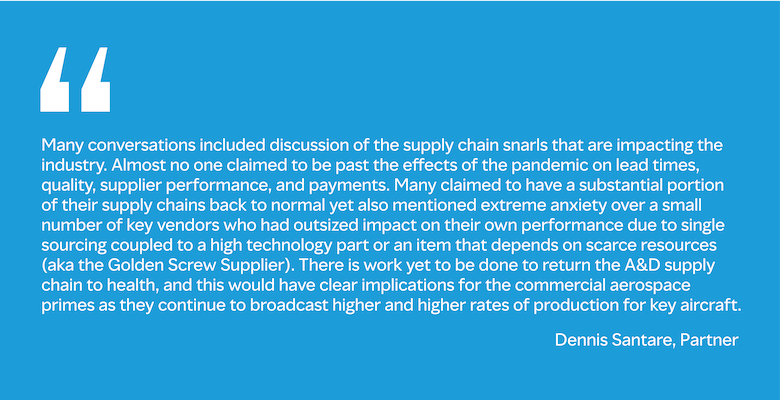
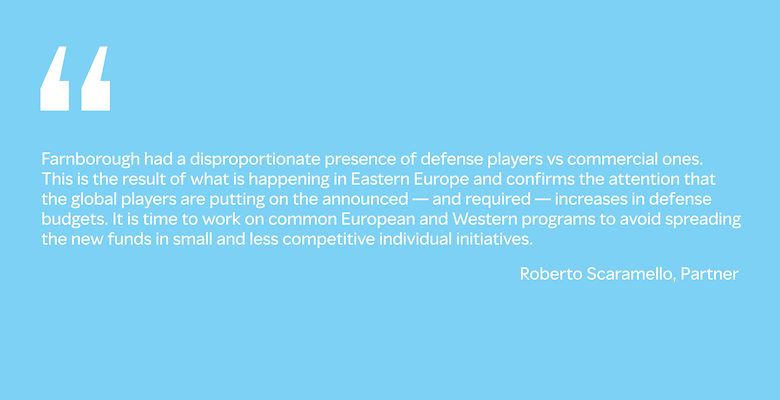
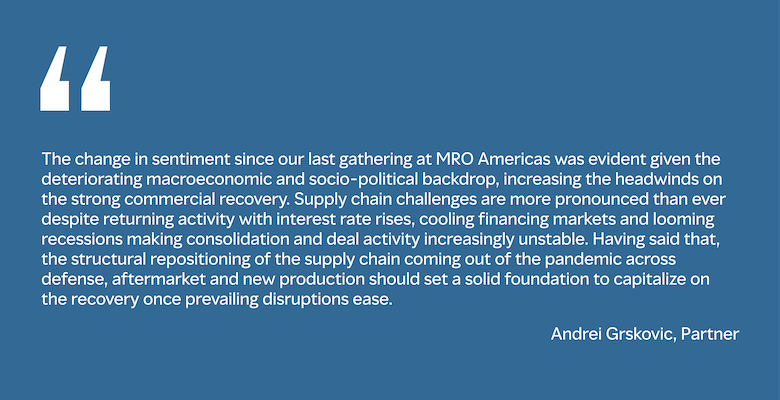
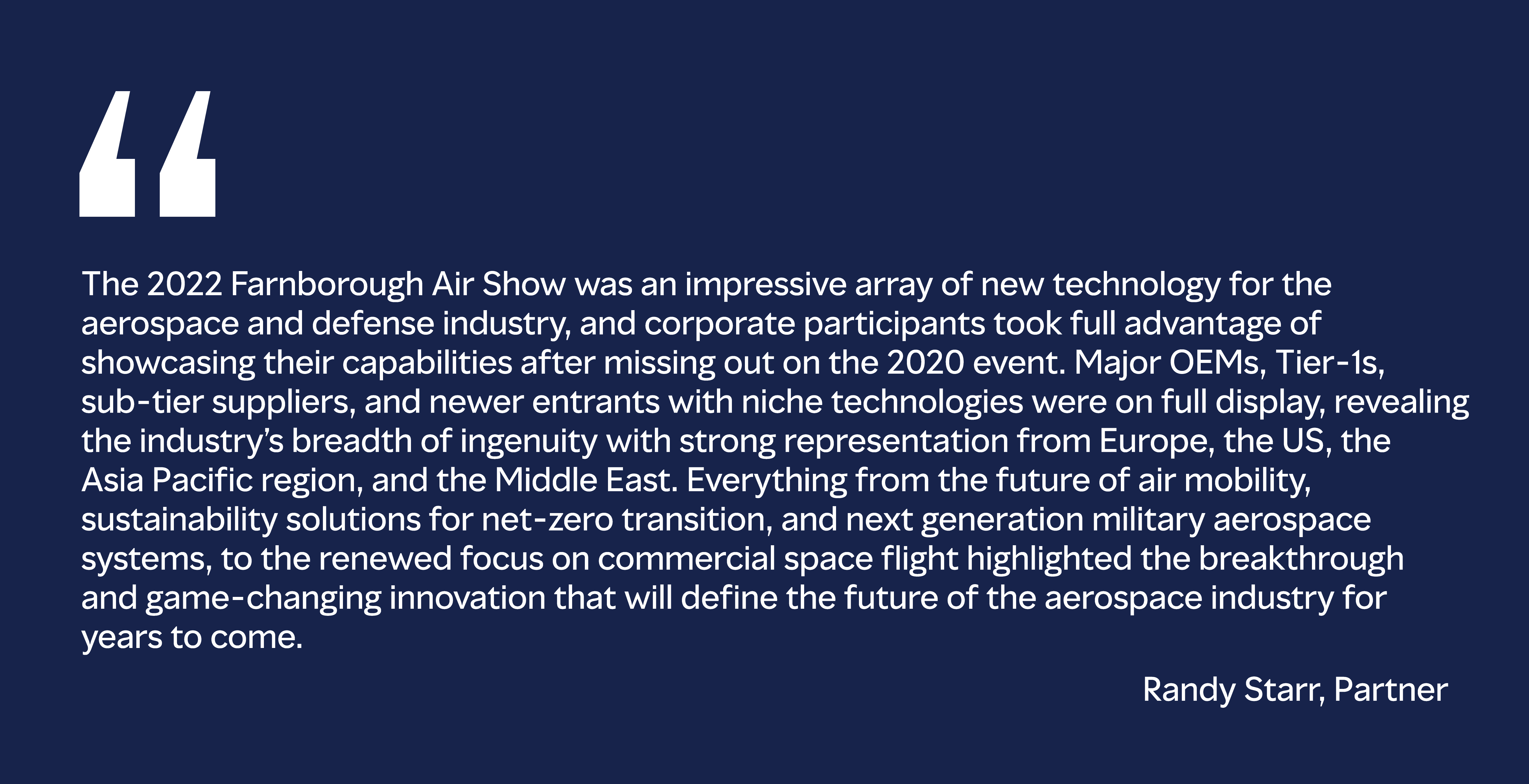
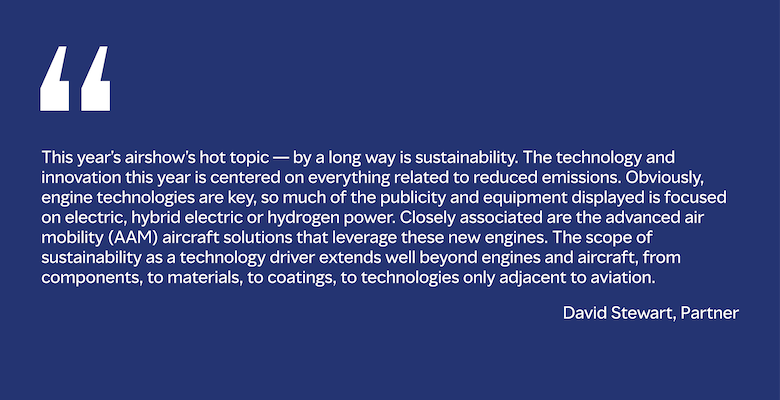
In the media
Oliver Wyman was featured in the following media placements:
FINN: A common European defence makes more sense than ever – why isn’t it moving forward? (Written by Roberto Scaramella, Partner and Giovanni Cardamone, Associate)
Financial Times: Russian supply concerns weigh on plane makers’ Covid recovery: Despite new orders from airlines, aerospace groups face worries over inflation and the availability of important commodities (Quote by David Stewart, Partner)
BBC News: Farnborough Special Edition: The global aviation industry has had a tough few years- so how much of a boost can it get from its first major in-person gathering since before the pandemic? (Features aviation perspective from Scot Hornick, Partner)
Lessons from the runway
Sustainability Overview with Robbie Bourke, CAVOK Partner, and David Stewart, Partner
Three Takeaways for Defense with Randy Starr, Partner
Event wrap-up
On the 4th day of Farnborough, Co-Chairs of the Women in Aviation & Aerospace Charter and Partner, Sumati Sharma along with Victoria Foy, CEO of Safran Seats moderated a panel, “The Data Debate”. The topic focused on best practices for setting D&I targets, collecting data and the benefits and challenges.
Panel guests on stage included: Stephen Hillier, Chairman of CAA; Mary Fitzpatrick Head of Global Inclusion at Rolls Royce; Adrian Binfield, Head of People and Culture IAG group; Oriel Petry, SVP of Public Affairs UK Airbus

The panel highlighted the importance of individual organizations and the wider industry setting D&I targets and being held accountable for delivering. As an industry, there is a lack of data about D&I, though from gender pay gap data in the UK, there is still more work to be done. Taking 10 airlines who report on GPG in the UK, the average median gender pay gap is 48, which means there is need for change.
The panel agreed that current available stats shows a need for urgency and action. For example, the number of female pilots in the industry has had minimal movement in decades at 5% globally. Similarly, 5% of airline CEOs are female. The panel discussed that data plays a role, though inclusive leadership starts at the top, and the 3 C’s: courage, care and culture alongside the data discussion is required.

